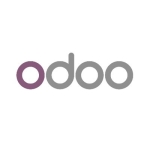What is our primary use case?
It is a general CRM. It almost acts as the central hub through which all of our transactions, whether e-commerce or retail, are funneled. It also brings in everything from our inventory. So, essentially, the overall collection of all of that data is deployed through it. This is the main tool that we use.
What is most valuable?
The way it effectively works with the array of other Microsoft tools, such as Azure, is valuable. It works very well with the use of data linking and things like that. Overall, it is a great overall tool to have an effective understanding of the transactional background of each of our customers.
What needs improvement?
One of the biggest challenges is that there is a huge disconnect between, "The business wants this data available," and making that data available in our systems. It requires a lot of effort. There's a huge disconnect, and that's because of a lot of backend work that needs to get done.
From a user standpoint, it is fairly intuitive. Its user interface is nothing phenomenal, but it is intuitive. However, on the backend, a lot of work is required to effectively push the data through. It requires a very heavy lift on the organization's part. It is a complex backend.
When it comes to any necessary changes or updates, we have issues. It is not very agnostic in terms of working with other platforms. A lot of data transformation had to be done internally in order to send it to various systems.
For how long have I used the solution?
I have been using this solution for one year and five months.
Buyer's Guide
Microsoft Dynamics CRM
January 2026
Learn what your peers think about Microsoft Dynamics CRM. Get advice and tips from experienced pros sharing their opinions. Updated: January 2026.
881,757 professionals have used our research since 2012.
What do I think about the stability of the solution?
Its performance is reliable, but when it comes to any changes or updates, we have issues.
What do I think about the scalability of the solution?
It is a challenge to grow it quite substantially. It involves a lot of work, but the solution overall is scalable as long as you're sticking with Microsoft.
We have anywhere between 50 and 60 end-users, and on the backend, we have about 15 users. It is used quite extensively. All of our data filtering from transactions is flowing into it.
How are customer service and support?
In terms of overall technical support, we work with partners. So, we have Microsoft partners who support us with day-to-day issues.
In terms of online tools and various instructional write-ups, Microsoft is quite comprehensive. There is a multitude of information available. It is down to the user to dive into it, but it is all there.
Which solution did I use previously and why did I switch?
I don't believe we were using anything else previously. A majority of our systems are Microsoft systems.
What about the implementation team?
We had our team, but that wasn't enough. We had to work with specific partners. There are a few companies where the challenge is the amount of legwork to get things going for the business and the startup cost.
There was quite a large set of developers. There were upwards of 20 developers, and there were upwards of five business analysts who were effectively capturing use cases from the business to help understand how we wanted the data. It was overall managed by three or four key managers and one director. It took upwards of eight months.
It does require maintenance, which is handled by our technology team.
What was our ROI?
I can't put a number to it, but the use of this system and the collection of the data has exponentially helped the company.
What's my experience with pricing, setup cost, and licensing?
It is a part of one comprehensive user license, which depends on the role of the individual. This is where Microsoft excels.
It is a very comprehensive package. We get everything from Access to D 365. We get Microsoft's suite of tools. I'm not too sure about the pricing, but I can't imagine it being cheap.
In terms of additional fees, we have particular partners we have to work with. It is very similar to how Google has Google partners. We have dedicated partners, and the fees with them are quite high.
What other advice do I have?
Understanding your overall strategy with data is critical. When you are using or getting used to one particular client platform, an enterprise requirement to scale it up requires enormous amounts of capital.
It is definitely not geared towards small-sized or medium-sized businesses. It has to be large organizations. I do know that D 365 does have things for small-sized and medium-sized businesses, but I haven't worked with it in that capacity. Knowing what I know about how it works at an enterprise level, the amount of work or cost incurred to make it more and more scalable is definitely something that small-sized and medium-sized businesses can't do.
I would rate this solution a seven out of ten.
Which deployment model are you using for this solution?
On-premises
Disclosure: My company does not have a business relationship with this vendor other than being a customer.



















